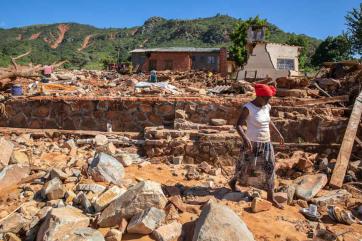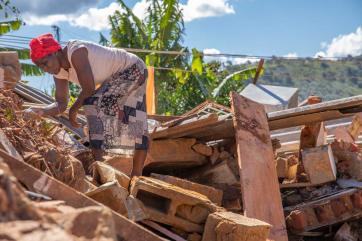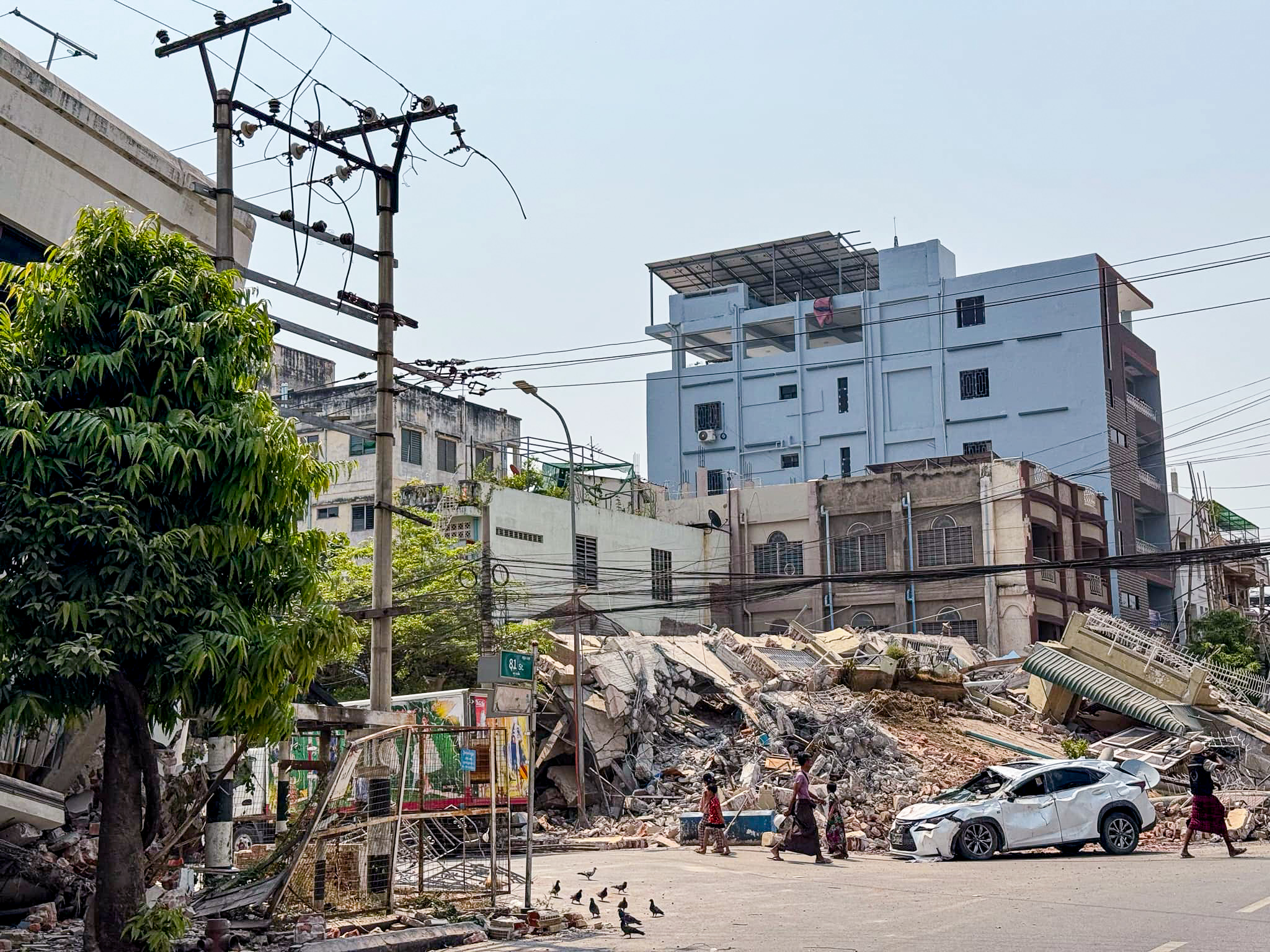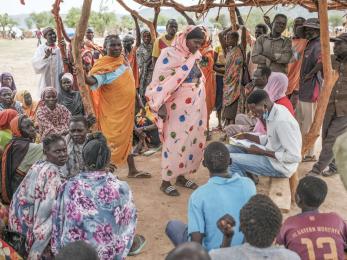From the field: Our team reports on Cyclone Idai recovery in Zimbabwe

The destruction left by Cyclone Idai was terrible — nearly unimaginable — says Vimbayi Mazhani, a member of Mercy Corps’ emergency response team in Zimbabwe. Reported to be the deadliest storm system so far this year, the cyclone ravaged communities, its combination of heavy rain, flooding and landslides leveling infrastructure, burying villages and killing thousands.
“People were still in shock,” Vimbayi recalls of the immediate aftermath. “People were crying, not believing that in a twinkle of an eye their lives had changed. There were no services like power, water or markets, since they were destroyed. Areas were not yet accessible because roads and bridges were completely destroyed.”
Huge piles of rubble and thick mud covered the areas where homes, farms and entire communities once stood. “People were still looking for the beloved ones and relatives, digging around where their houses used to be,” she says.
Vimbayi, a program manager for water, sanitation and hygiene programming, was one of the first on the ground in Zimbabwe, arriving days after the cyclone tore through. A native of the country, Vimbayi is based in South Sudan but flew back to support the emergency response. Below, she reports from the field on her experience and how recovery is going weeks later.
Why did you want to help with this response?
I have a passion for humanitarian support, and I felt a zeal to help my fellow country people in their time of need. It’s important to me to support people in need and help bring back their dignity and respect, and bring hope to them. It means bringing value to their life.


How did you feel seeing your home country in this condition?
It was not easy to comprehend, since this is the first time our country has had such a devastating and terrible disaster. I felt hopeless. The need was huge, but my determination to bring human value and hope to their situation kept me going... the need to bring back human value, dignity and respect.
What has it been like trying to reach people?
It has been difficult in most areas. Since the bridges were destroyed, most communities were not accessible. It took almost 12 days after the cyclone struck to access the district of Chimanimani [one of the worst affected areas].

As time has progressed, some main roads were rehabilitated and access became better. But heavy rains continued to fall and, at times, this complicated access because our vehicles can get stuck.
What have you been working on since you first arrived?
Mercy Corps is leading the response for water, sanitation and hygiene, so in collaboration with the local ministry of health we allocated areas or locations for partners to respond to. With the government, we did assessments in wards that were reachable to determine needs.

We distributed emergency hygiene kits in some wards, and constructed temporary latrines and handwashing facilities in other wards.
How have people responded to the assistance?
Communities were happy with the assistance rendered to them, since they had nothing left with them after the disaster. They would help in offloading the materials without asking for incentive, because they appreciated that help had been brought to them. Someone told me: “You have brought life to us after the disaster.”
What is the situation like now, after several weeks?
Those who lost the homes are still in holding facilities while the local authority works on relocating them to temporary or permanent places. Some who lost loved ones are still trying to cope with the situation, that they will not be able to have a proper send-off through burial of their missing ones. Others have accepted the situation and are trying to restore their lives back to normal.

In terms of the response, more wards have become accessible and minimum services are being provided to meet their needs. People can access and use safe drinking water and now have access to basic hygiene facilities. The support provided by different partners has restored hope to these communities.
What has this experience been like for you?
It has been challenging. As part of the Zimbabwean community, at times I have been emotional about what has transpired. But I am also happy to be providing lifesaving support to my people.
Going forward, what would you like to see happen for the people affected?

Farms and banana plantations were destroyed, and there is likelihood of drought, so we need donors to advocate for livelihoods projects for the survivors. They need support to recover from the disaster through these livelihoods programs, as well as more psychosocial support and permanent shelters.
We are getting into winter so survivors need shelter and warm clothes. I am most concerned about when people will be relocated to permanent places, so they can get the basic resources they need to start a new chapter of their lives.


